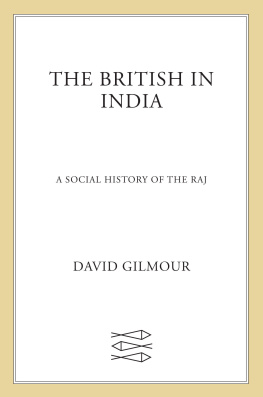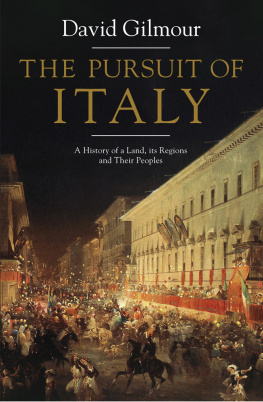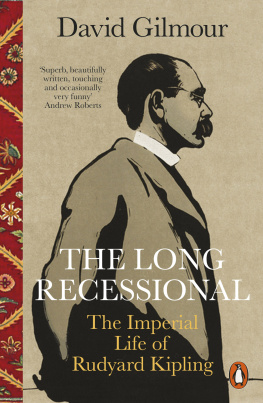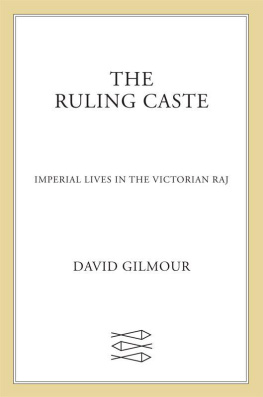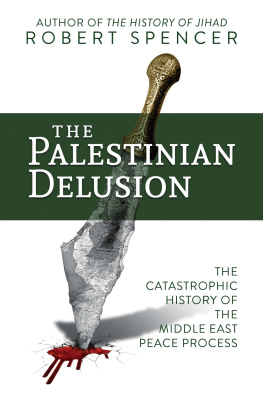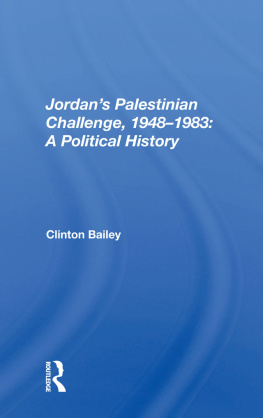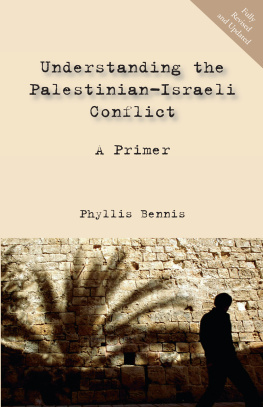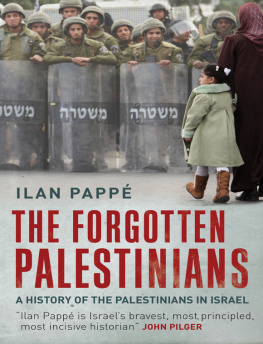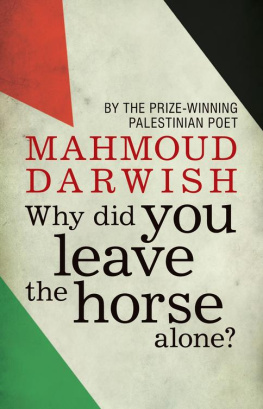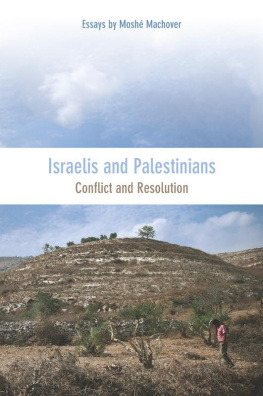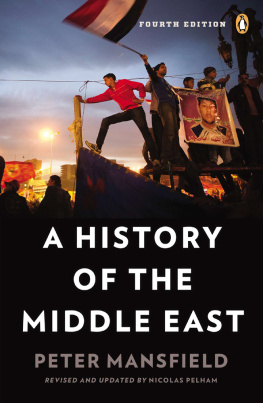David Gilmour - Dispossessed The Ordeal of the Palestinians
Here you can read online David Gilmour - Dispossessed The Ordeal of the Palestinians full text of the book (entire story) in english for free. Download pdf and epub, get meaning, cover and reviews about this ebook. year: 1980, publisher: Sphere, genre: Religion. Description of the work, (preface) as well as reviews are available. Best literature library LitArk.com created for fans of good reading and offers a wide selection of genres:
Romance novel
Science fiction
Adventure
Detective
Science
History
Home and family
Prose
Art
Politics
Computer
Non-fiction
Religion
Business
Children
Humor
Choose a favorite category and find really read worthwhile books. Enjoy immersion in the world of imagination, feel the emotions of the characters or learn something new for yourself, make an fascinating discovery.
- Book:Dispossessed The Ordeal of the Palestinians
- Author:
- Publisher:Sphere
- Genre:
- Year:1980
- Rating:4 / 5
- Favourites:Add to favourites
- Your mark:
- 80
- 1
- 2
- 3
- 4
- 5
Dispossessed The Ordeal of the Palestinians: summary, description and annotation
We offer to read an annotation, description, summary or preface (depends on what the author of the book "Dispossessed The Ordeal of the Palestinians" wrote himself). If you haven't found the necessary information about the book — write in the comments, we will try to find it.
Dispossessed The Ordeal of the Palestinians — read online for free the complete book (whole text) full work
Below is the text of the book, divided by pages. System saving the place of the last page read, allows you to conveniently read the book "Dispossessed The Ordeal of the Palestinians" online for free, without having to search again every time where you left off. Put a bookmark, and you can go to the page where you finished reading at any time.
Font size:
Interval:
Bookmark:
David Gilmour
The Ordeal of the
Palestinians
Since leaving Oxford in 1974, where he read Modern History, David Gilmours work has taken him to most regions of the Middle East. He has lived in Beirut and Cairo and done research in Jordan, Syria, Israel, the Occupied Territories and the countries of the Arabian Gulf. His work has appeared in a number of magazines including The New Statesman. New Society and Middle East International. David Gilmour is the author of Lebanon, The Fractured Country also published by Sphere Books.
Also by David Gilmour in Sphere Books:
LEBANON, THE FRACTURED COUNTRY
DISPOSSESSED
The Ordeal of the Palestinians
DAVID GILMOUR
SPHERE BOOKS LIMITED London and Sydney
First published in Great Britain by
Sidgwick & Jackson Ltd in 1980
Copyright 1980, additional material 1982 by David Gilmour
Published by Sphere Books Ltd 1982
30-32 Gray's Inn Road, London WC1X 8JL
Reprinted 1983, 1984
This book is sold subject to the condition that it shall not, by way of trade or otherwise, be lent, re-sold, hired out or otherwise circulated without the publisher's prior consent in any form of binding or cover other than that in which it is published and without a similar condition including this condition being imposed on the subsequent purchaser
Set in Times
Printed and bound in Great Britain by Cox & Wyman Ltd, Reading
To Salwa Es Said
This book could not have been written without the co-operation of hundreds of Palestinians whom I have met and talked to during the last five years. It would be impossible to thank here all the people who have helped me and the following is only a list of those Palestinians and others from whom I have received particular help and hospitality: Musa Alami, Muhammad Jarallah, Israel Shahak and Rouhi al-Khatib from Jerusalem; Ahmed Tuqan and Antun Atalla from Amman; Hatem Abu Ghazaleh and his family from Gaza; Tawfiq Zayyad, Selim Jubran and Atallah Mansour from Nazareth; Yusuf Rida from Nablus; Ali Saad from Damascus; Abdul Mohsin Kattan and Khaled al-Hassan from Kuwait; Nabil Hijazi, Zaki Nuseibeh and Ibrahim Ibrahim from the United Arab Emirates; and Leila Baroody, Walid Jumblatt, Sami Alami and members of the Es Said, Dimechkie and Abul Jubain families from Beirut. I would also like to thank Sir John Glubb for his information on Jordan and Sir Christopher Chancellor for permission to quote from his fathers papers. I am particularly grateful to John Reddaway, Robert Swann, Philip Mansel and Elfi Pallis who read the manuscript and gave me valuable advice on its contents; to Phyllida Ashton, who advised me on the transliteration of Arabic names, and to Hillary Metwally who twice typed it all out.
March 1980
D.G.
Part ONE: Palestine and the Palestinians before 1948
PART Two: The New Diaspora
Part Three: War and Politics
Palestine and the International
Arab Palestine 70
Three stages in the Conquest of Arab
Palestine - 1947, 1948, 1967 71
Mount Ebal stands at the centre of ancient Palestine, high above the green domes and minarets of Nablus; its slopes are grey and sterile, the unending stones relieved only by goats and the thornbush. From the summit the Bible lands open out in each direction: Nazareth to the north and the dim shapes of the Galilee; eastwards, across the Jordan, the Moab hills stretch in solemn line to beyond the Dead Sea; to the south lie Jerusalem and the wilderness of Judaea; westwards, through the haze, the coastal plain bends round Carmel from Acre down to Gaza and Ashqelon.
Familiar names, and a landscape that has been described so often that as early as 1821 an Englishman complained that the authors who have written in illustration of this small portion of the globe... may be thought to have so completely exhausted the subject, as to leave nothing new to be added by another.1 He would have been unable to write that about the population because the travellers who wrote about Palestine rarely considered its inhabitants. Perhaps, like artists, they would use them as incidental material, as drops of local colour to be placed in picturesque attitudes at the side of some great ruin. But they were not interested in them as people because they were interested only in the past. Since the withdrawal of the Byzantine Empire from Syria, the West has coveted Palestine for its history. After two Eastern religions, Christianity and Judaism, had become westernized, it was claimed that the home of those religions should also be detached from the Eastern world. The Crusaders, the
12 INTRODUCTION
missionaries and the Zionists, both Jewish and Gentile, demanded Palestine for what it had been. For what it actually was, an Arab, mainly Islamic country, they did not care, and they treated its inhabitants accordingly.
Our centurys ignorance has been as bad as our ancestors. For all the invasions and changes in its rulers, the core of Palestines population has been ethnically stable for millennia, possessing for the last thirteen hundred years a culture that has been unambiguously Arab. Yet in our own lifetime we have managed to forget it, ignore it, sometimes even to pretend that it did not exist. In the Balfour Declaration of 1917, the document which effectively decided their future, the Palestine Arabs (at that time forming ninety per cent of the population) were described merely as existing non-Jewish communities. Balfour himself, as foreign secretary, admitted that in Palestine we do not propose even to go through the form of consulting the wishes of the present inhabitants. Zionism, he believed, was of far profounder import than the desires and prejudices of the 700,000 Arabs who now inhabit that ancient land.2 The early Zionists were equally dismissive. According to the Russian Jew, Asher Ginsberg, they regarded the Palestinians either as savages who live like animals or simply as non-existent.3 Many years later, Israels prime minister, Golda Meir, announced that they had in fact never existed: There was no such thing as Palestinians.... It was not as though there was a Palestinian people in Palestine considering itself as a Palestinian people and we came and threw them out and took their country away from them. They did not exist.4 Subsequently an Israeli minister of education translated this fiction into official policy. It is important that our youth should know, he told Israeli schoolteachers, that when we returned to this country we did not find any other nation here and certainly no nation which had lived here for hundreds of years. The Arabs whom they had encountered, he explained, were only Egyptian refugees who had arrived in the middle of the nineteenth century.5
I his kind of propaganda could never have been really convincing outside Israel because so many people - travellers, merchants, missionaries and soldiers - had actually seen the Palestinians and knew that they existed even if they knew nothing else about them. Nevertheless, Western attitudes towards the Arabs have been conditioned almost unfailingly by ignorance or
prejudice or both. Some of this has been unconscious, derived from Biblical associations - Israelites versus the Philistines, the fleshpots of Egypt and so on - and some of it is the product of a European anti-Islamic bias dating back to the Arab invasions of Spain and France in the eighth century. This bias is reflected in European literature from the Song of Roland to Chestertons Lepanto and is well expressed by the title of a book written by the Dean of Norwich in 1697: The True Nature of Imposture Fully Displayd in the Life of Mahomet.
In the nineteenth century, when travellers came in increasing numbers to the Orient, Europeans began dividing up the Arabs into categories. The town Arabs, dismissed as dirty, idle and corrupt, were referred to as wogs or gyppos; in the words of Trollopes George Walker, they were a mean, false cowardly race.6 As a counterbalance, the desert Arab was introduced, the unfettered wanderer over great horizons, the nobleman of pure blood who cared nothing for the luxuries of the bazaar. The pasha with his belly and harem was contrasted with the hawk-faced Bedu struggling against the hardships of the desert. This romantic and largely ignorant adulation of the Bedouin was, perhaps, a particularly English cult, though it was also adopted by some Frenchmen. As the nomadic Arabs emerged as objects of unrestrained admiration, the townspeople received a still greater degree of revulsion. In the diaries and memoirs of Europeans, Bedouin worship receives almost as much space as descriptions of the squalor and vices of the cities and their inhabitants. The reaction of Sir Arthur Wauchope, British high commissioner in Palestine, was typical of this romantic fashion. On meeting an Arab delegation, he noted: One cannot help feeling that the very strain of noble blood which coursed through the veins of Saladin still animates the present-day sheikhs.7
Next pageFont size:
Interval:
Bookmark:
Similar books «Dispossessed The Ordeal of the Palestinians»
Look at similar books to Dispossessed The Ordeal of the Palestinians. We have selected literature similar in name and meaning in the hope of providing readers with more options to find new, interesting, not yet read works.
Discussion, reviews of the book Dispossessed The Ordeal of the Palestinians and just readers' own opinions. Leave your comments, write what you think about the work, its meaning or the main characters. Specify what exactly you liked and what you didn't like, and why you think so.


